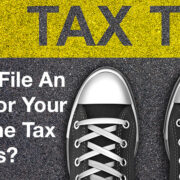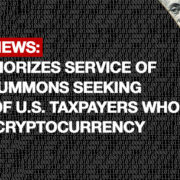Did You Receive Funds From The Employee Retention Credit Program That You Were Not Eligible To Receive? Here are the five new red flags that IRS is looking for.
IRS opens second Employee Retention Credit Voluntary Disclosure Program sending up to 30,000 letters to address more than $1 billion in errant claims
Thousands of new recapture letters going out for improper ERC claims made for Tax Year 2021, some Tax Year 2020.
As part of ongoing compliance work, the IRS announced on August 15, 2024 plans to mail thousands of additional letters reversing or recapturing improperly paid ERC claims. The IRS currently anticipates this round of mailings could reach up to 30,000 letters this fall. These “clawback” notices potentially represent more than $1 billion in claims from Tax Year 2021 and some additional, later-filed Tax Year 2020 claims. These letters notify taxpayers that the IRS is reversing or recapturing their previous credit. Several thousand of the letters have been mailed, with more coming in upcoming weeks and into the fall.
This is the second round of these letters. Previously, the IRS determined that more than 12,000 entities filed claims that were improper for Tax Year 2020, resulting in $572 million in assessments.
The latest letters generally involve larger claims than earlier letters regarding 2020 because Congress increased the maximum ERC in 2021. Congress increased the maximum ERC from $5,000 per employee per year in 2020 to $7,000 per employee for each quarter of the year in 2021.
“This new round of letters serves as another incentive for businesses that believe they received an erroneous Employee Retention Credit payment to come forward and participate in the disclosure program and resolve the matter on more favorable terms,” IRS Commissioner Danny Werfel said. “The disclosure program provides a limited, unique opportunity to avoid future IRS compliance problems as well as sidestep a significant repayment fee with penalties and interest.”
Red Flags The IRS Is Looking For –
When the IRS identifies an employer that has received excessive or erroneous ERC, the agency will reclaim that ERC through normal tax assessment and collection procedures.
The five new red flags cover these areas:
- Essential businesses during the pandemic that could fully operate and didn’t have a decline in gross receipts.Promoters convinced many essential businesses to claim the ERC when, in many instances, essential businesses weren’t eligible because their operations weren’t fully or partially suspended by a qualifying government order.
- Businesses unable to support how a government order fully or partially suspended business operations.Whether a business was fully or partially suspended depends on its specific situation. When asked for proof on how the government order suspended more than a nominal portion of their business operations, many businesses haven’t provided enough information to confirm eligibility.
- Businesses reporting family members’ wages as qualified wages.If business owners claimed the ERC using wages paid to related individuals, those claims are likely for the wrong amount or ineligible.
- Businesses using wages already used for Paycheck Protection Program loan forgiveness.Businesses can’t claim the ERC on wages that they reported as payroll costs to get PPP loan forgiveness.
- Large employers claiming wages for employees who provided services.Large eligible employers can only claim wages paid to employees who were not providing services. Many large employers’ claims incorrectly included wages for employees who were providing services during these periods.
The IRS previously issued warnings involving these seven areas:
- Too many quarters being claimed.
- Government orders that don’t qualify.
- Too many employees and wrong calculations.
- Businesses citing supply chain issues.
- Businesses claiming ERC for too much of a tax period.
- Businesses didn’t pay wages or didn’t exist during eligibility period.
- Promoter says there’s nothing to lose.
Reopening Of ERC-VDP.
If you claimed and received funds from the Employee Retention Credit (“ERC”) Program and now realize that you were not entitled to receive those funds, you should consider entering into the Employee Retention Credit Voluntary Disclosure Program (“ERC-VDP”). The IRS believes that there are taxpayers who were lured by promoters to apply to the IRS to get funds from the ERC Program even though the promoters knew that the taxpayer did not qualify to get funds from the ERC Program. If such a taxpayer is selected for examination by the IRS and the IRS determines that the ERC claim is erroneous, such taxpayer will be required to repay the ERC funds with penalties and interest. Criminal prosecution is also possible where egregious circumstances and willful intent are present.
Criminal exposure and a reduced amount of payback is available by entering into ERC-VDP. The SECOND ERC-VDP allows filers of erroneous ERC claims to voluntarily disclose ERC claims made in error and pay only 85% of the amount received without any worry of criminal exposure. The FIRST ERC-VDP which required an 80% payback had a deadline of March 22, 2024 to file for participation. Even though the SECOND ERC-VDP provides a slightly higher payback than the FIRST ERC-VDP, the SECOND ERC-VDP can still protect businesses from potential costly compliance action in the future, such as audits, full repayment, penalties and interest.
Details Of The Second ERC-VDP.
The program requires you to:
- Voluntarily pay back the ERC funds received, minus 15%,
- Cooperate with any requests from the IRS for more information, and
- Sign a closing agreement.
Benefits Of ERC-VDP.
There are several benefits to using the ERC-VDP if you received the ERC funds but were not entitled to them.
- You need to repay only 85% of the ERC funds (the First ERC-VDP was 80%) you received as a credit on your return or as a refund.
- You do not need to repay any interest you received on your ERC refund.
- You do not have to amend income tax returns to reduce wage expense.
- The 15% retention of ERC funds (the First ERC-VDP was 20%) is not taxable as income.
- The IRS will not charge penalties or interest on the claimed ERC amount if you pay it in full (claimed ERC minus 15% under the Second ERC-VCP) by the time you return your signed closing agreement to IRS.
- The IRS will not examine ERC on your employment tax return for tax period(s) resolved within the terms of ERC-VDP.
Who can apply to the ERC-VDP.
Businesses, tax-exempt organizations, and government entities are eligible to apply for the ERC-VDP for each tax period that meets all the following requirements:
- Your ERC claimed on an employment tax return has been processed and paid as a refund, which you have cashed or deposited, or paid in the form of a credit applied to the tax period or another tax period.
- You now think that you were entitled to $0 ERC.
- You are not under employment tax examination (audit) by the IRS.
- You are not under criminal investigation by the IRS.
- The IRS has not reversed or notified you of intent to reverse your ERC to $0. For example, you received a letter or notice from the IRS disallowing your ERC.
If you used a third-party payer to file your employment tax returns or claim your ERC, you cannot apply to the ERC-VDP yourself. You must contact the third-party payer to apply. Also, if you have applied for ERC and have yet to receive the ERC funds, you cannot participate in ERC-VDP. Instead you would need to pursue the ERC claim withdrawal process.
How to apply to ERC Voluntary Disclosure Program.
The submission of Form 15434, Application for Employee Retention Credit Voluntary Disclosure Program, will start the process which must be filed no later than November 22, 2024. Additionally, if your application includes tax periods ending in 2020, you must include ERC-VDP Form SS-10. By utilizing qualified tax counsel, you should have the greatest likelihood of meeting the ERC-VDP requirements and thus securing all the program’s benefits.
IMPORTANT NOTE – Any taxpayer receiving a recapture letter from IRS before applying will be ineligible to participate in the Voluntary Disclosure Program for the calendar quarter that the letter covers. SO DON’T DELAY.
What Should You Do?
We encourage taxpayers who are concerned about their ERC funding awards to come in voluntarily before the IRS commences any examination or investigation. By then, it will be too late to avoid the risk of returning all ERC funds awarded plus interest and penalties.
Let the tax attorneys of the Law Offices Of Jeffrey B. Kahn, P.C. located in Orange County (Irvine), San Diego County (Carlsbad) and elsewhere in California can help you with your ERC-VDP application, give advice about this process, or advice on the ERC. You know that at the Law Offices Of Jeffrey B. Kahn, P.C. we are always thinking of ways that our clients can save on taxes. Tax problems are usually a serious matter and must be handled appropriately so it is important to that you have hired the best lawyer for your situation. We are experts in handling tax matters and can effectively represent at all levels with the IRS and State Tax Agencies including criminal tax investigations and attempted prosecutions, undisclosed foreign bank accounts and other foreign assets, and unreported foreign income. Also, if you are involved in cannabis, check out what a cannabis tax attorney can do for you. And if you are involved in crypto currency, check out what a bitcoin tax attorney can do for you.









 Follow
Follow Follow
Follow